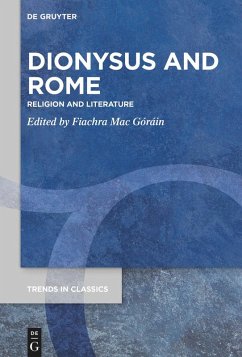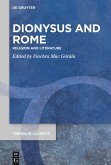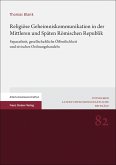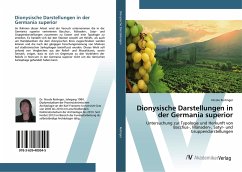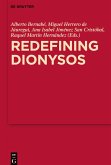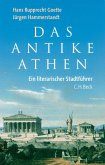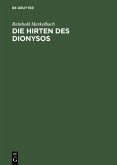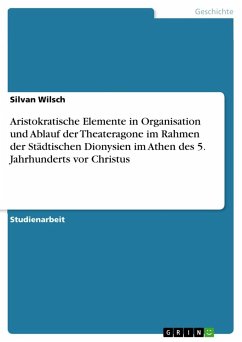While most work on Dionysus is based on Greek sources, this collection of essays examines the god's Roman and Italian manifestations.
Nine contributions address Bacchus' appearance at the crossroads of Greek and Roman cultures, tracing continuities and differences between literary and archaeological sources for the god. The essays offer coverage of Dionysus in Roman art, Italian epigraphy; Latin poetry including epic, drama and elegy; and prose, including historiography, rhetorical and Christian discourse.
The introduction offers an overview of the presence of Dionysus in Italy from the archaic to the imperial periods, identifying the main scholarly trends, with treatment of key Dionysian episodes in Roman history and literature. Individual chapters address the reception of Euripides' Bacchae across Greek and Roman literature from Athens to Byzantium; Dionysus in Roman art of the archaic and Augustan periods; the god's relationship with Fufluns and Liber in the 4th and 3rd centuries BCE; Dionysian associations; Bacchus in Cicero; Ovid's Tristia 5.3; Bacchus in the writings of Christian Latin writers.
The collection sheds light on a relatively understudied aspect of Dionysus, and will stimulate further research in this area.
Hinweis: Dieser Artikel kann nur an eine deutsche Lieferadresse ausgeliefert werden.
Nine contributions address Bacchus' appearance at the crossroads of Greek and Roman cultures, tracing continuities and differences between literary and archaeological sources for the god. The essays offer coverage of Dionysus in Roman art, Italian epigraphy; Latin poetry including epic, drama and elegy; and prose, including historiography, rhetorical and Christian discourse.
The introduction offers an overview of the presence of Dionysus in Italy from the archaic to the imperial periods, identifying the main scholarly trends, with treatment of key Dionysian episodes in Roman history and literature. Individual chapters address the reception of Euripides' Bacchae across Greek and Roman literature from Athens to Byzantium; Dionysus in Roman art of the archaic and Augustan periods; the god's relationship with Fufluns and Liber in the 4th and 3rd centuries BCE; Dionysian associations; Bacchus in Cicero; Ovid's Tristia 5.3; Bacchus in the writings of Christian Latin writers.
The collection sheds light on a relatively understudied aspect of Dionysus, and will stimulate further research in this area.
Hinweis: Dieser Artikel kann nur an eine deutsche Lieferadresse ausgeliefert werden.

